(A)+Cl2hv−−→ monochloro product
To maximise the yield of monochloro product in the above reaction ? Solution in Telugu
Cl2 must be added in excess
Reactant (A) must be added in excess
Reaction must be carried out in dark
Reaction must be carried out with equimolar mixture of Cl2 and A
The correct Answer is:B
If reactant (A) is added in excess then maximum collission between (A) and Cl⋅ in the rate determining step.
Topper's Solved these Questions
- HYDROCARBONS (ALKANES) BOOK - MS CHOUHANCHAPTER - HYDROCARBONS (ALKANES) EXERCISE - LEVEL - 2 (1. COMPREHENSION)
3 Videos
- HYDROCARBONS (ALKANES) BOOK - MS CHOUHANCHAPTER - HYDROCARBONS (ALKANES) EXERCISE - LEVEL - 2 (2. COMPREHENSION)
7 Videos
- GRIGNARD REAGENTBOOK - MS CHOUHANCHAPTER - GRIGNARD REAGENTEXERCISE - Level-2 (Subjective Problems)
6 Videos
- HYDROCARBONS (ALKENES)BOOK - MS CHOUHANCHAPTER - HYDROCARBONS (ALKENES)EXERCISE - LEVEL-2
22 Videos
Similar Questions
For the given question (1, 2, 3), consider the following reaction.
 monohalogenation product
monohalogenation product
Light in involved in which step of the reaction :
View SolutionHalogenation is a substitution reaction, where halogen replaces one or more hydrogens of hydrocarbon.
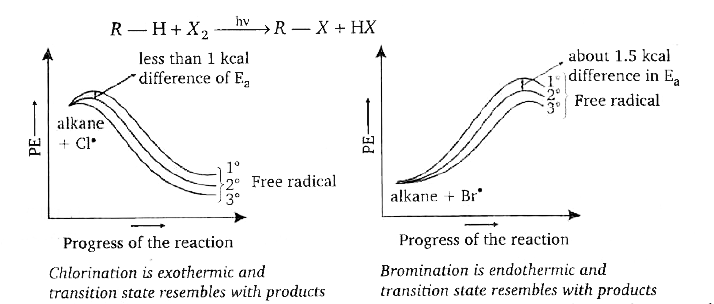
Chlorine free radical make 1∘,2∘,3∘ radicals with almost equal ease, whereas bromine free radicals have a clear preference for the formation of tertiary free radicals. So, bromine is less reactive, and more slective whereas chlorine is less selective and more reactive.
The relative rate of abstraction of hydrogen by Br is
3∘>2∘>1∘(1600)(82)(1)
The relative rate of abstraction of hydrogen by Cl is
3∘>2∘>1∘(5)(3.8)(1)
1-halo-2, 3-dimethyl butane will be obtained in better yields, if halogen is :
View Solution
How many geometrical isomer of (X) is possible ?
View Solution
In each reagent box write a letter designating the best reagent and condition selected from the above list of reagents.
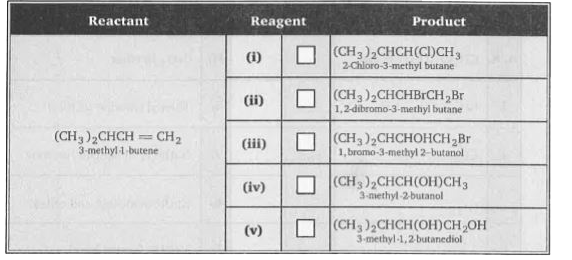
View SolutionNumber of monochloro structures in products is
View Solutionn-butaneoverset(Cl_(2)//hv)(to) Give the total number of monochloro products (including sterioisomers), which are possible in the above reaction
View Solution(A)+Cl2hv−−→ monochloro product
To maximise the yield of monochloro product in the above reaction?
View SolutionReaction-1 : CH3−CH2−CH2−CH2−CH3Cl2−−−−−→hv Optically active monochloro products (s) are (R) .
Reaction-2 :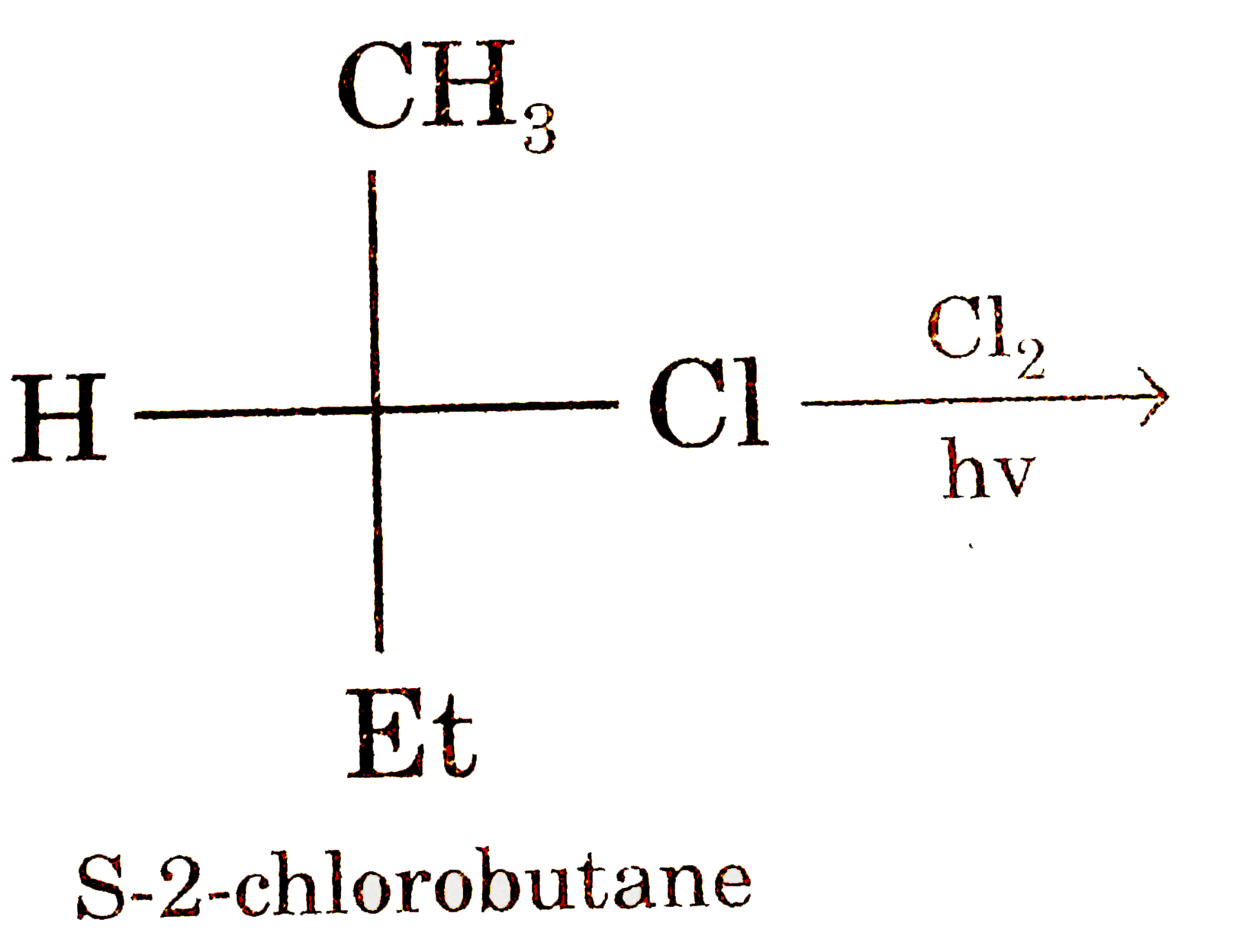 Optically active di-chloro products (s) are (S).
Optically active di-chloro products (s) are (S).
Reaction-3 :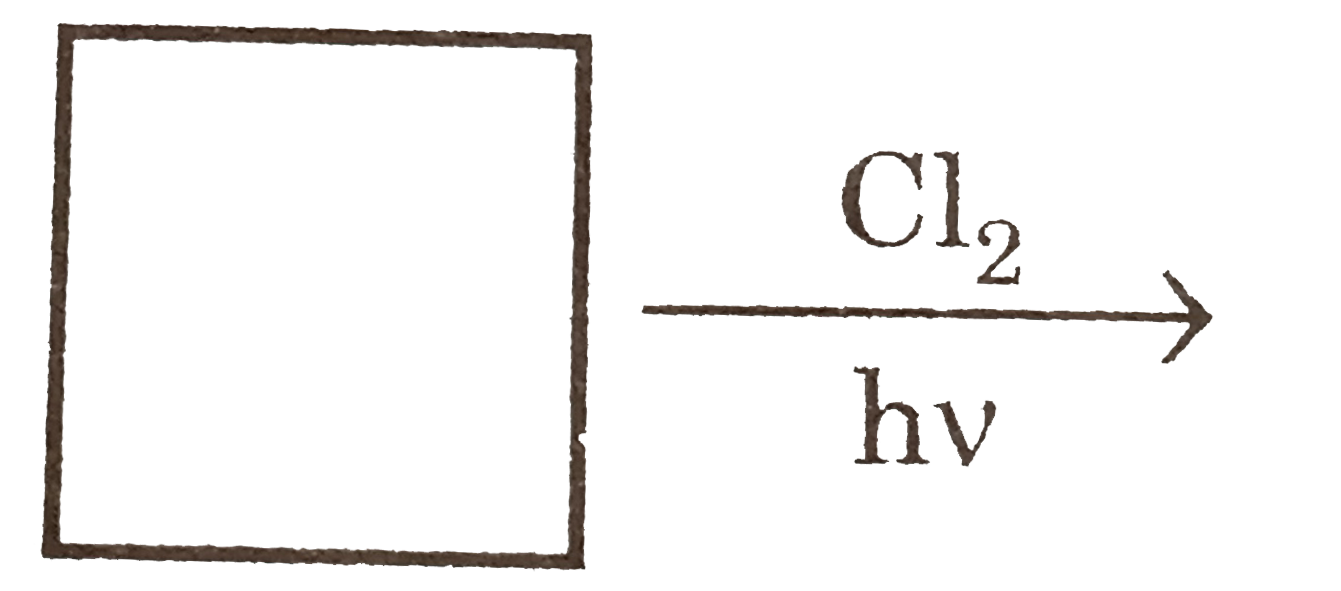
Optically active di-chloro product (s) are (P).
Reaction-4 : 2-methoxy propaneCl2−−−−−→hv Optically active monochloro product (s) are (Q).
What is the sum of P+Q+R+S?
View SolutionC4H10Cl2hv−−→X+Y(Mono chlorinated products)
The yield of X and Y formed in the above reaction is
View Solution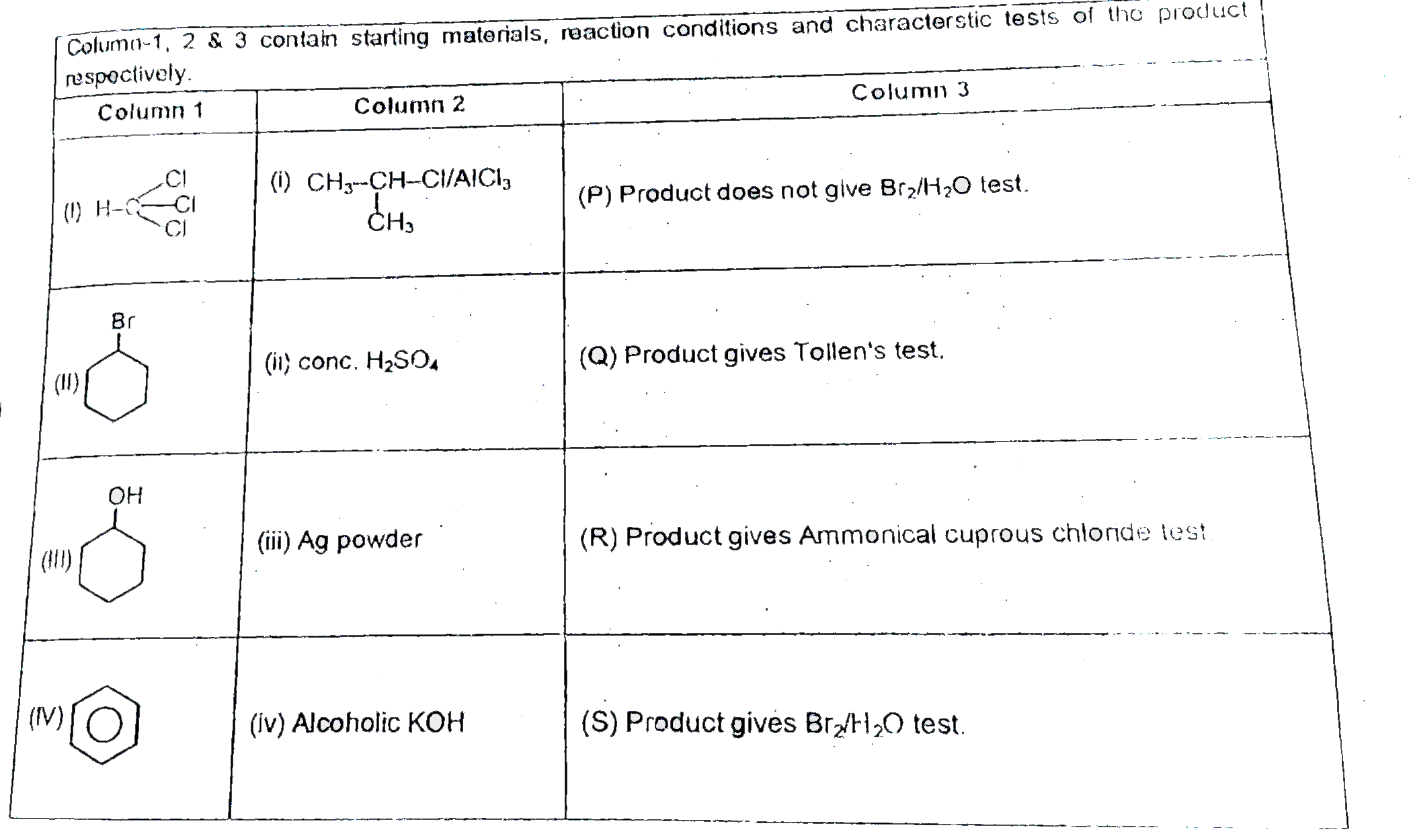
Which of the following set gives the product that give two monochloro structural products after reaction with Cl/hv ?
View Solution , H2/Ni−−−→Poverset(Cl_(2)//hv)rarrQ (Total number of monochloro structure products).
, H2/Ni−−−→Poverset(Cl_(2)//hv)rarrQ (Total number of monochloro structure products).
View Solutionn-Pentane Cl2−−→hv(A) (no. of total product)
View SolutionCH_(3)D+Cl_(2)underset( "(1 mole)")overset("hv")rarr Product The product is
View SolutionCH_(3)D+Cl_(2)underset( "(1 mole)")overset("hv")rarr Product The product is
View SolutionHow many monochloro structural isomeric products are formed
when isohexane is treated with Cl2/hv ?
View SolutionWhich of the following set gives the product that give two monochloro structural products after reaction with Cl//hv ?
View Solution
